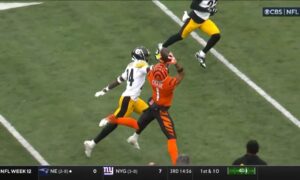According to NFL reporter Albert Breer, the NFL Draft Advisory Board is changing the manner in which they advise prospective underclassmen considering applying for the NFL Draft, as well as number of underclassmen that they will advise.
When underclassmen approach the Advisory Board, they will now receive just one of three grades. They will be told that they have received either a first- or second-round grade, or will receive simply a designation of “neither”.
The “neither” designation is equivalent to essentially telling the athletes to remain in school, which will increase their chances of being drafted higher when they do declare for the draft—or drafted at all, which has become a growing issue.
This past draft saw a record number of underclassmen declare for the draft. Accordingly, there was also a record number of underclassmen going undrafted, many of them failing to sign on with any teams after the draft as an undrafted free agent.
Previously, underclassman grades were more flexible. They were given either a first-, second-, or third-round grade, a draftable grade after the first round, or a not draftable grade. The ambiguity of the grading left questions as to who should risk coming out of college early to attempt to begin their pro career.
In addition to the new grade guidelines for underclassmen, the number of underclassmen eligible to submit to the Advisory Board for feedback has now been capped.
Beginning with this cycle, only five underclassmen per school can now submit for feedback from the Advisory Board. Players who already know that they are on the verge of being draftable should be more prone to staying in school and finishing their college careers if they were unable to receive feedback.
Over 100 players with eligibility left applied for the draft last year. It’s not clear yet whether or not that will be a growing trend.
The NFL is attempting to do their part to make sure that’s not the case with these Advisory Board adjustments, helping to encourage athletes to stay in school—or perhaps more accurately discouraging athletes from declaring prematurely.
Many have suggested that the NFL take some further action, such as forbidding borderline draftable underclassmen from declaring, but I believe this would be going a step too far.
If a player is eligible to declare for the draft, that should be the bottom line. It is their decision to make whether or not they declare, based on whatever guidance they receive. Telling a player that they cannot would be overstepping the bounds.







